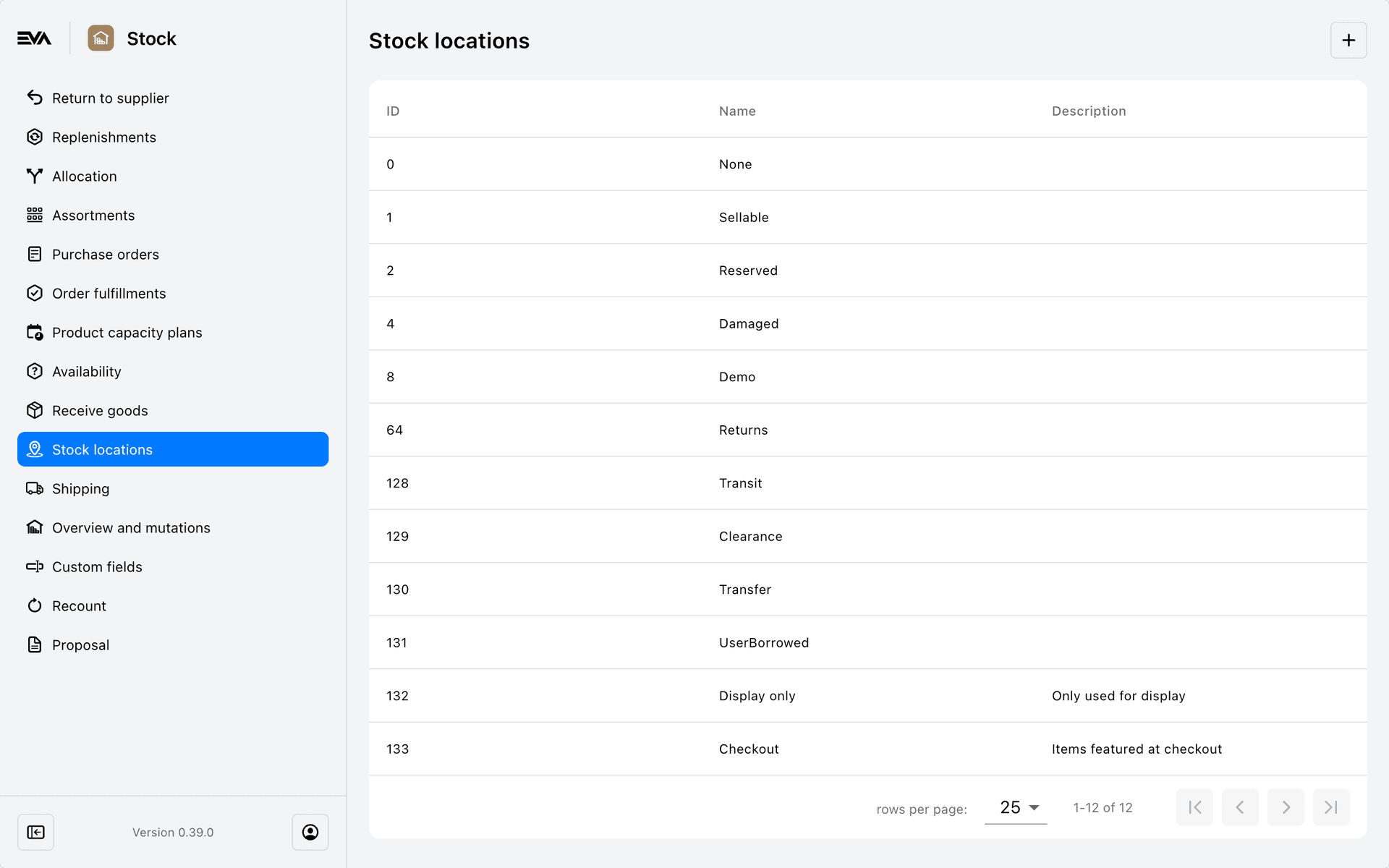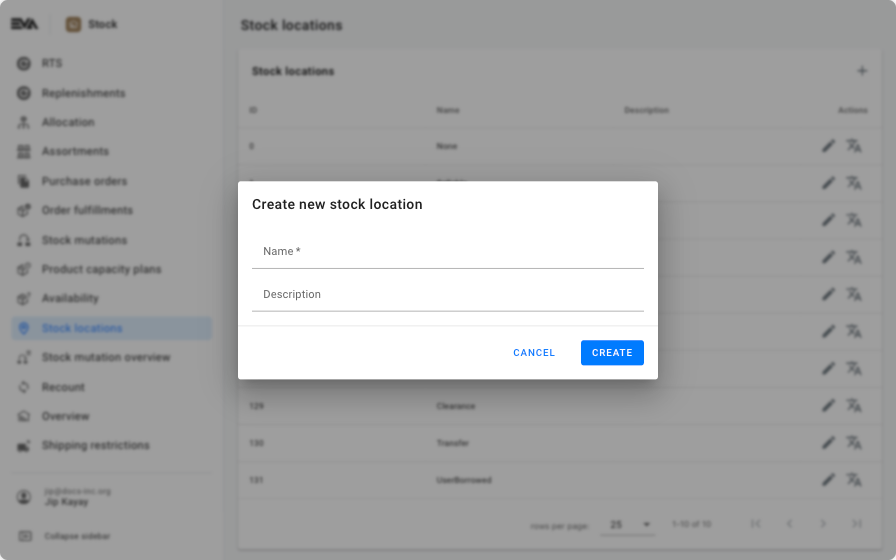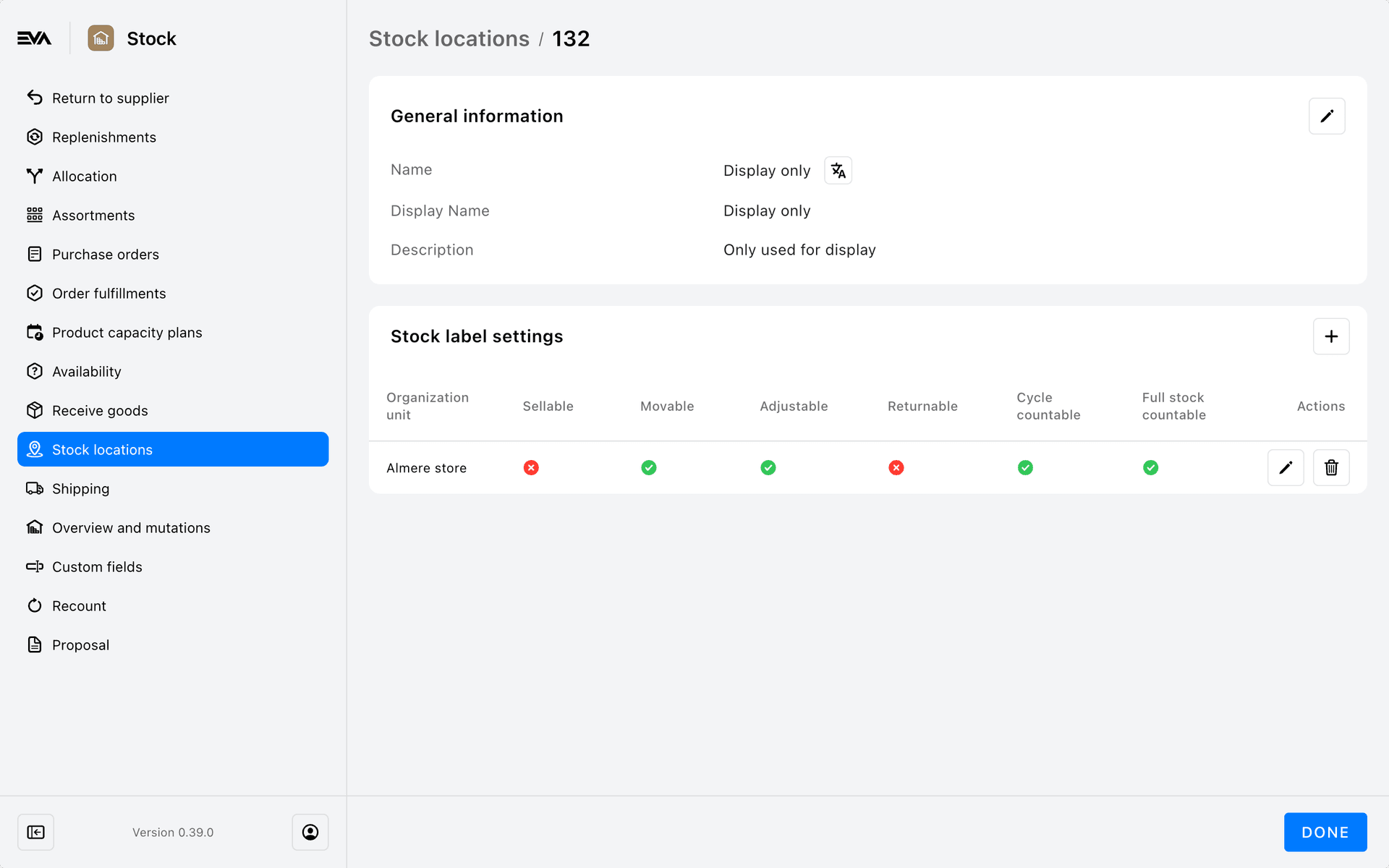Stock locations
A stock location (AKA stock label) defines the category of stock we are dealing with. All stock have a label, and based on that label its behavior differs.
In order to be able to access this chapter, you need the Stocklabels permission.
- Not having the scope
Createwill hide the '+' icon in the top right corner. - Not having the scope
Editwill hide the 'pencil' icon found on each stock label. - Not having the scope
Viewwill hide the chapter.
The following stock labels are the most prominent and configured by default:
| Stock label | Description |
|---|---|
| Sellable | Stock that can be sold |
| Reserved | Stock that is reserved for specific orders |
| Damaged | Damaged goods - not sellable |
| Demo | Demo stock, i.e. used for display in your store - not sellable |
| Transit | Stock that is expected for your OU but has not arrived yet |
| UserBorrowed | Products that are being borrowed by an employee |
| Clearance | Products on sales clearance |
View/edit/translate stock location
The initial overview is where you can view, edit, or set translations on existing stock labels.
- 'Pencil' icon: To edit
- 'Language' icon: To configure translations

Create stock location
Clicking the '+' icon in the top right corner will prompt a Create new stock location overlay where the fields Name (required) and Description (optional) can be filled in.

Once done, simply click the Create button to be to the details screen. In this Settings screen you can indicate what should be possible for the label, configurable per OU. We call these options features.
Simply put, now that we've created a stock label for Display-only products for example, we can indicate we don't want it to be Sellable and Returnable, while enabling all other features.

Exposing stock labels for returns
In order return scenarios, the available stock labels exposed to the user are determined based on the values in StockLabels:Returnable. If Orders:Returns:AlwaysReturnToSellable is set to true, then Sellable will be the only available label for returns. Read more here.
Stock labels for RTS orders
Return to Supplier orders have their own particular flow when it comes to stock labels.
While the default stock location for products in RTS baskets is Sellable, you can change the flow by using the following two settings:
Orders:ReturnToSupplier:DefaultStockLabel- This setting lets you indicate the "source" stocklabel for RTS orders, which means the items will be moved there as soon as they are used in an RTS basket.
- You can still change the stock location manually.
Orders:ReturnToSupplier:HoldingStockLabel- Allows you to indicate a stocklabel that should "hold" the RTS stock while it is pending approval. This means stock no longer needs to be reserved either.